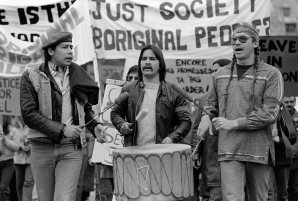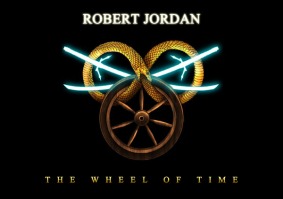I shouldn’t be doing this-writing about politics online. I always tell family and friends who engage in political discussions on Facebook not to bother; but this is such an incredibly important issue and this story on CBC is such a perfect picture of it.
In case you haven’t heard, Vickery Bowles, Toronto’s head librarian, is currently mired in a battle over free speech as a result of her allowing Meghan Murphy, who runs the website Feminist Current, to hold an event. Murphy has argued that “allowing men to identify as women” undermines women’s rights, and that transgender women should not be allowed in women’s spaces, according to the
CBC article on the issue. In the CBC interview, Bowles is pressed hard by
As It Happens host Carol Off to justify what the host clearly considers a violation of transgender rights. Off is clear about her own stance on the issue when she says:
Sometimes what we call free speech is hurtful speech. And we have a situation, as you know, the numbers are that about 20 per cent of trans people [in Ontario] have been physically or sexually assaulted due to their identity. Even more have been verbally threatened or harassed. So how do you safeguard them physically and their rights, if you feel that it’s within others’ rights to express ideas that deny those people their rights?
While Off doesn’t come right out and say it, her concerns are presented fairly openly; if speech is “hurtful”, or offensive, it should be limited or even disallowed entirely. Speech is considered to be so powerful that people must be protected from the harm it can do, even to the point of safeguarding them physically from this harm.
It should be acknowledged here that, absolutely, speech has power. Words can be incredibly damaging-I’m sure we all bear scars from words that were spoken to us in our lives out of anger, hate, misunderstanding, or any other number of reasons. The question then, is whether or not the damage caused by words is worse than the damage caused by the limitation of speech. Are we safeguarding people and society more effectively by limiting offensive speech? Or is a free and equal society better safeguarded by protecting free speech, even if it goes against our own beliefs?
Here I would like to present two important principles surrounding anything defined as a “right”. First of all, a right must be universal if it is to be deemed a right; I don’t believe there are many who would dispute this. Thus, an effective test for determining whether or not a principle can be deemed a right is to apply it to multiple situations. Second, rights may be limited-but only if those limitations are also universal. For example, we live in a society that grants the right of freedom of religion. Justifiably, this right is limited by a restriction on harming others. So, I could not kill or injure another person and use religion as my defense. This limitation is applied universally across all religions and persons in our society across history.
With the above in mind, it is time to examine this new right developing in our society, the right to not be offended. Lets take that a little further, however, and try to restrict this new right even more. Let us define the right to not be offended as:
The right to be protected from speech that attacks the very core belief or identity of any person, resulting in harm to that person’s self-identity and stability.
I have tried to frame this definition to be as clear and free from dispute as possible; it is difficult to argue with the value of protecting people from others who would tear down their very identities. I truly hope I am presenting this in a way that is a fair representation of those seeking to endorse this movement against offensive language. I also want to be clear: this movement is coming from a good place, with good intentions. It is an attempt to protect those deemed as needing protection. Yet, even with all of that, I believe establishing this defense against offense is a dangerous road for our society.
I have established a couple principles for anything that can be suitably called a “right”. In brief: a right is universal, and any limitations on a right must also be universal. Now, we must apply this test to the right described above. First off, can this right be applied universally? To answer this question, we can use both a current case examination, as well as historic one. For a current case, it doesn’t take long to think of a number of groups who we would not want to give this right to. First to my mind is the growing body of neo-nazis and white supremacists making themselves heard more and more in Europe and throughout the world. Many of these individuals have placed as their core identity a belief in supremacy over other races and a hatred of many other groups of people. Are we to protect their self-identity in the same way? Or, to bring the issue closer to home-another case would be those who the proponents of this new right against offense are trying to silence. Most of the people who speak against trans people hold their beliefs as a core tenant of their own identity, through their religion and worldview. Are we to also limit criticism of this group of people? If we go down this road, we find ourselves in the peculiar and utterly harmful situation of two disagreeing sides never talking to each-other for fear of offense.
But, I hear you respond
, being trans is so much deeper than the other parts of identity you describe-they don’t choose to be who they are, they simply are that way. Based on this, we could limit the right to not be offended by the provision that it is applied only to aspects of a person’s identity that are not chosen (putting aside the debate concerning whether or not sexual identity is chosen). But, as mentioned above, limitations to rights must also be applied universally. To examine this, let us take the case of religious and cultural identities, which can change and be changed by choice. We live in a hypersexualized society that places a huge
 amount of importance on what type of person an individual is physically intimate with. Yet, identity is so much broader than this. Here in Canada, we have grown to recognize the massive psychological and spiritual importance of providing an avenue for First Nations people to retain a connection to their culture and history. Separating First Nations people from their own culture had dire consequences and should rightly be considered genocide. Yet, we now, as a society, place more importance on sexual identity compared to cultural identity. How can this be so? Should we apply this directly to First Nations people, asserting that they can choose to reject their culture, making their culture less important in their identity compared to sexual preference? Of course not! In the same way, we cannot undervalue religious identity because it is chosen.
amount of importance on what type of person an individual is physically intimate with. Yet, identity is so much broader than this. Here in Canada, we have grown to recognize the massive psychological and spiritual importance of providing an avenue for First Nations people to retain a connection to their culture and history. Separating First Nations people from their own culture had dire consequences and should rightly be considered genocide. Yet, we now, as a society, place more importance on sexual identity compared to cultural identity. How can this be so? Should we apply this directly to First Nations people, asserting that they can choose to reject their culture, making their culture less important in their identity compared to sexual preference? Of course not! In the same way, we cannot undervalue religious identity because it is chosen.
But, you ask, doesn’t Canada have laws against discrimination? Are you arguing against that? A fair point, but one that has been answered by historic readings of our Constitution. The courts have historically understood that discrimination does not include offense. Instead, discrimination involves actively blocking movement of another individual based on some type of held belief concerning that person’s attributes (eg movement to a new job, new location, entrance into school, etc). This distinction comes from a recognition in the courts that the right to free speech is a core right that breaths life into the other rights that we hold. Unfortunately, in recent years this understanding has been lost.
Now that we have established that cultural identity is just as, if not at times more important than sexual identity, it is worth exploring a historical case where, in the same way as in modern-day, the right to not be offended cannot be applied universally. I approach this case with caution and trepidation since I never want to be charged as

diminishing the evil of slavery and those who perpetuated it. It is, however, a matter of fact that most of those who perpetuated the slave trade held it as a core belief that black people were not people and that whites were superior. This belief often formed a core part of their identity, sculpting the way they lived their lives and carried themselves. To apply the right against offense in this case is clearly not permittable; or should we condemn Viola Desmond, the wonderful woman who graces the Canadian $10 Bill, for offending the white people in a Movie Theatre in 1946 by sitting in an area designated whites only? Of course not!
In fact, offence-far from being something damaging to society, has been the bedrock of progress. Without offensive people disrupting core beliefs held in society, women would still be forced to live their lives penned in the home, without a right to vote or even voice their opinion. Indeed, the very people who are now seeking to shut down offensive speech owe their own freedom to the power of offence. It is as if someone escaped from a prison, and immediately turned around and reinforced the prison doors.
I hope I have made clear what is at stake when we weigh the importance of free speech, including the right to offend. The very tool that has allowed our society to reexamine our beliefs is what is being damaged. I could not say it better than Vickery Bowles, who when questioned about her stance, responded:
Sometimes when you’re defending free speech, you’re in a very uncomfortable position where you’re defending perspectives and ideas and viewpoints that many in the community, or a few in the community, whatever, find offensive.
But it’s at that time that it’s most important to stand up for free speech. That is what makes Canada a democratic country, and that is what we need today more than ever.
As an additional aside, it should be understood that I say all of this in the context of governmental authority and the public sphere. I believe there is an argument to be made which allows for the implementation of policies that restrict offensive behaviour and language within private groups, clubs, and organizations. But that is a discussion for another day.
 amount of importance on what type of person an individual is physically intimate with. Yet, identity is so much broader than this. Here in Canada, we have grown to recognize the massive psychological and spiritual importance of providing an avenue for First Nations people to retain a connection to their culture and history. Separating First Nations people from their own culture had dire consequences and should rightly be considered genocide. Yet, we now, as a society, place more importance on sexual identity compared to cultural identity. How can this be so? Should we apply this directly to First Nations people, asserting that they can choose to reject their culture, making their culture less important in their identity compared to sexual preference? Of course not! In the same way, we cannot undervalue religious identity because it is chosen.
amount of importance on what type of person an individual is physically intimate with. Yet, identity is so much broader than this. Here in Canada, we have grown to recognize the massive psychological and spiritual importance of providing an avenue for First Nations people to retain a connection to their culture and history. Separating First Nations people from their own culture had dire consequences and should rightly be considered genocide. Yet, we now, as a society, place more importance on sexual identity compared to cultural identity. How can this be so? Should we apply this directly to First Nations people, asserting that they can choose to reject their culture, making their culture less important in their identity compared to sexual preference? Of course not! In the same way, we cannot undervalue religious identity because it is chosen.  diminishing the evil of slavery and those who perpetuated it. It is, however, a matter of fact that most of those who perpetuated the slave trade held it as a core belief that black people were not people and that whites were superior. This belief often formed a core part of their identity, sculpting the way they lived their lives and carried themselves. To apply the right against offense in this case is clearly not permittable; or should we condemn Viola Desmond, the wonderful woman who graces the Canadian $10 Bill, for offending the white people in a Movie Theatre in 1946 by sitting in an area designated whites only? Of course not!
diminishing the evil of slavery and those who perpetuated it. It is, however, a matter of fact that most of those who perpetuated the slave trade held it as a core belief that black people were not people and that whites were superior. This belief often formed a core part of their identity, sculpting the way they lived their lives and carried themselves. To apply the right against offense in this case is clearly not permittable; or should we condemn Viola Desmond, the wonderful woman who graces the Canadian $10 Bill, for offending the white people in a Movie Theatre in 1946 by sitting in an area designated whites only? Of course not!


 Hello anyone who has been faithful enough to remain subscribed to my blog after a very long time of inaction on my part. A great deal has happened in my life since I was operating this blog, so very little time has been spent on activities such as this. However, I have decided to return to the blog, and make an attempt at continuing. I am intending on reinventing the blog in a small way however-hence the name change from Trit’s Politics to Trit’s Bits. I will continue to post on political stories that interest me and that I believe are important. However, I am also going to expand into posting on other hobbies that I have. In particular, it is my intention to (at least partly), begin posting about food and cooking on occasion, as this is a particular passion of mine. In other words, you will see bits of my life cropping up in this blog, dependent upon what it is that I am currently fascinated with. I doubt that I will ever reach the readership that I have previously attained, since blogs seem less popular and random info may be less interesting then pure politics, but we will see how things go. I encourage you to comment on any of my posts, as comments are my favourite aspect of blogging.
Hello anyone who has been faithful enough to remain subscribed to my blog after a very long time of inaction on my part. A great deal has happened in my life since I was operating this blog, so very little time has been spent on activities such as this. However, I have decided to return to the blog, and make an attempt at continuing. I am intending on reinventing the blog in a small way however-hence the name change from Trit’s Politics to Trit’s Bits. I will continue to post on political stories that interest me and that I believe are important. However, I am also going to expand into posting on other hobbies that I have. In particular, it is my intention to (at least partly), begin posting about food and cooking on occasion, as this is a particular passion of mine. In other words, you will see bits of my life cropping up in this blog, dependent upon what it is that I am currently fascinated with. I doubt that I will ever reach the readership that I have previously attained, since blogs seem less popular and random info may be less interesting then pure politics, but we will see how things go. I encourage you to comment on any of my posts, as comments are my favourite aspect of blogging.

Blog Talk